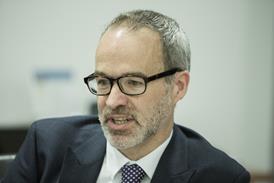The must-read stories and debate in health policy and leadership.
NHS England seems to have realised some external pressure is needed to push the transformation agenda along in Liverpool – and has told Cheshire and Mersey Integrated Care System to commission an independent review of the city’s hospitals.
The configuration of services is possibly more complex and confused than that of any other city.
There are six providers, masses of service duplication, a big financial deficit, some serious quality concerns and a long-standing failure to attract the levels of research funding it should do.
And despite the efforts of local commissioners since at least 2014, there’s no clear agreement over what the future configuration should look like.
The review will “go further” than current transformation programmes, the ICS says, by recommending “a long-term optimum care model” for all acute and tertiary services in the city.
This sounds like it will set out how many providers there should ultimately be and suggest ways to accelerate the integration of clinical services between them.
Many within Liverpool deny there’s any significant problem with the current configuration – there are, after all, five specialist providers which are either “good” or “outstanding”. The city’s politics are also notoriously knotty, so plenty of skill and sensitivity will be needed to make this review count.
Recycling binned
One solution to the problem of senior doctors turning down extra shifts to avoid higher tax bills looks to be a non-starter at 10 of the most pressured trusts.
The organisations have refused to offer “pension recycling”, with sources saying this would be “totally unfair” on lower paid staff.
Some consultants and other senior staff have faced large, unexpected tax bills in recent years, discouraging them from taking on extra shifts, or prompting them to retire earlier than planned.
Some trusts have bypassed this scenario with the so-called recycling scheme, which offers additional salary in place of employer pension contributions.
HSJ asked the 20 trusts with the longest elective waiting lists whether they offered pension recycling to their consultants. Ten said they do, and 10 said they do not. See our story for more on this, including a table of the 20 trusts.
Also on hsj.co.uk today
In our expert briefing Mental Health Matters, Emily Townsend highlights the “seriously inadequate” level of professional understanding of eating disorders, and in our comment section, Oliver Potter says the NHS is uniquely positioned to play a pioneering role in tackling inequalities both for disabled patients and its disabled staff.



























No comments yet